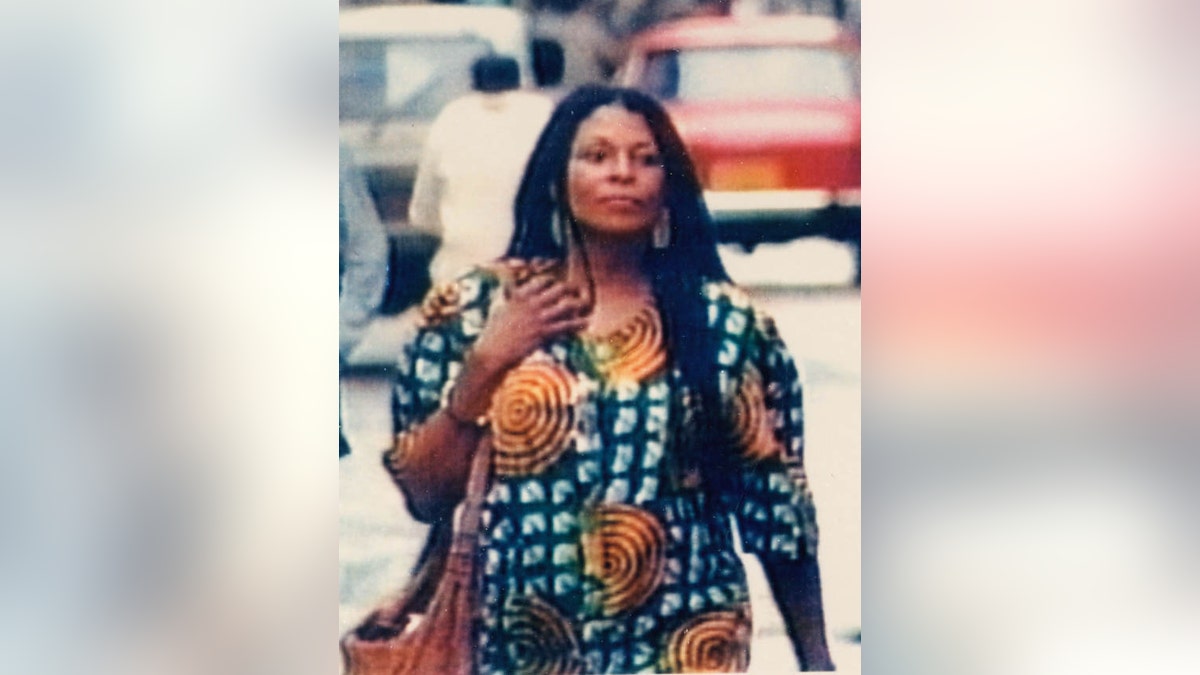
FILE - This is an undated file photo provided by the New Jersey State Police showing Assata Shakur - the former Joanne Chesimard - who was put on a U.S. government terrorist watch list on May 2, 2005. Shakur, 57, was convicted in 1973 of killing New Jersey State Trooper Werner Foerster as he lay on the ground. She escaped from prison in 1979 and fled to Cuba. The FBI is scheduled to make an announcement Thursday, May 2, 2013 regarding Joanne Chesimard, who killed a New Jersey state trooper on this date 40 years ago. (AP Photo/New Jersey State Police, File) (The Associated Press)
An ESPN site targeting female sports fans on Thursday removed a poem paying homage to a convicted cop killer after “an oversight in the editorial process” led to the poem being published several days ago, the embattled sports giant told Fox News.
DaMaris Hill’s poem “Revolution” had led the April 25 ESPNW.com feature “Five Poets on the New Feminism,” which was produced “in honor of National Poetry month…to reflect on resistance, redefining feminism and movement,” according to a site description. But Hill’s poem opened with the dedication “(for Assata Shakur),” honoring the one-time Black Liberation Army member who has been hiding out in Cuba to avoid finishing a prison term for her murder rap.
“There was an oversight in the editorial process for selecting the poems for the ‘Five Poets on the New Feminism’ feature on espnW,” a spokesperson told Fox News in an email. “Dr. DaMaris Hill is a respected professor and poet, who submitted this poem based upon her personal feelings toward Assata Shakur. While the editors welcomed a contribution from a notable writer and chose it as a reflection of this one poet’s experience, upon further review we have decided it is not an appropriate selection for our site and have removed the piece from the feature.”
Later Thursday, the title of the feature had been changed to “Four Poets on the New Feminism,” Hill’s poem was gone and an editor’s note at the bottom of the page informed readers of the changes.
Attempts to reach Hill for comment were not immediately successful.
Social media was abuzz with critics bashing ESPNW for publishing the poem in the first place, with The Federalist’s Sean Davis mocking the Connecticut-based power on Twitter as “The worldwide leader in praising cop killers.”
The poem debacle comes on the heels of ESPN’s massive Wednesday purge of about 100 television, radio and Internet personalities as part of the network’s attempt to emerge from a ratings plunge.
Shakur, aka Joanne Chesimard, the godmother of the late rapper Tupac Shakur, is suspected in a series of early 1970s incidents linked to black revolutionary groups in New York City, including a bank robbery, grenade attack and the ambushing of police officers in Queens and Brooklyn. She was convicted of fatally shooting a New Jersey trooper in the head in 1973, but escaped prison and, in the early 1980s, fled to Cuba, where she was granted political asylum. She is on the list of the FBI’s Most Wanted Terrorists.





















